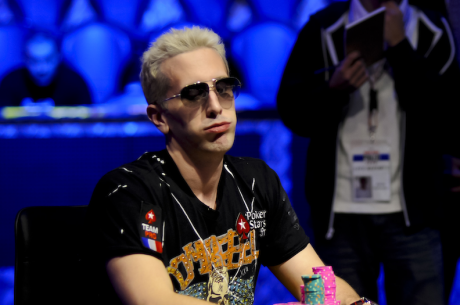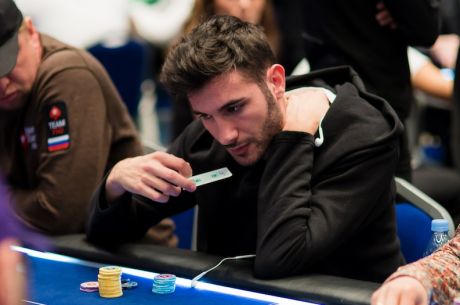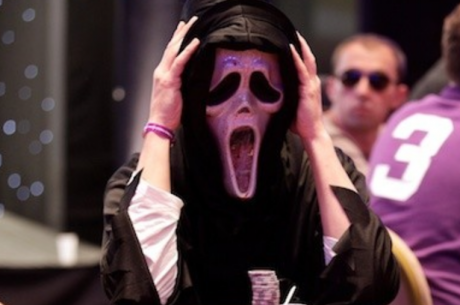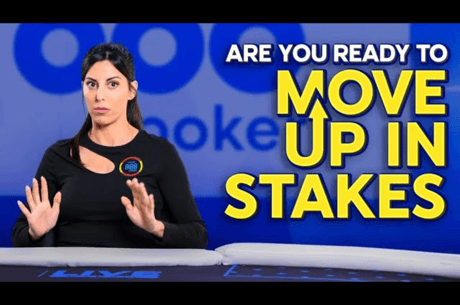��Worst-First�� Thinking in Poker: How Much Is It Costing You?
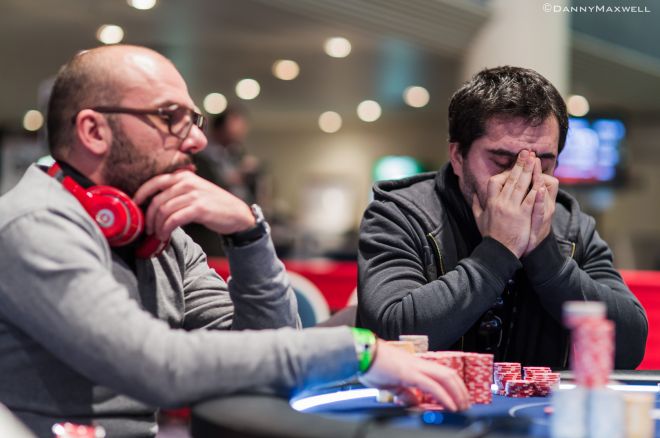
I saw another one of those drivers just the other day �� the ones that habitually come to a dead stop at the end of a freeway on-ramp, rather than smoothly merging into traffic. The reason for this peculiar behavior is pretty obvious: they��re scared of their own shadow.
These are the ones who won��t take their turn at a four-way stop sign, but just wave everybody else to go first, hoping to be able to wait until there is nobody else around before proceeding through the intersection. They gum up traffic at two-way stops, too, unwilling, for example, to turn right into a clear lane on the off-chance that somebody in the far lane will suddenly swerve into them. And heaven forbid there is a snowflake on the pavement anywhere �� these people��s heads will fill with visions of carnage as vehicles slide into each other, and they creep along at about two miles per hour.
Have you seen these drivers playing poker? Sure you have. They play passively with anything but the stone-cold nuts. They��re always amazed to win a pot, because they��re always convinced that the other guy has the tippy-top of his possible range. Their play recalls that hand from Poker After Dark when Jennifer Tilly checked the river in position with jacks full of kings, fearing that Patrik Antonius had made the exceedingly unlikely quad kings:
(Note: This was atypical for Tilly, who does not usually play so timidly. Also, the best part of that video clip is the facial expressions of the other players when her hand is revealed.)
These players are characterized by what has been called, in other contexts, ��worst-first�� thinking �� that is, the tendency to think of worst-case scenarios first, and let your subsequent thoughts and decisions be affected as a result.
I��m not just talking about being pessimistic, but rather being overwhelmed by thoughts that things are going to go as badly as they possibly can. It��s the parents who won��t let their kids play in the nearby park because of exaggerated fears about the surrounding neighborhood. It��s the man who won��t get a flu shot because he��s read about the one-in-a-million adverse reaction, and can��t rationally weigh risks and benefits. It��s the family gripped by fear of terrorism, as if the terrorists�� main target is Mr. and Mrs. Jones in Dubuque, Iowa.
One of the most common manifestations of this type of thinking in hold��em poker is fear of the flush. I can��t tell you how many times I��ve heard hand histories that include a line like this: ��The flop had two clubs, so I had to bet really big to protect my overpair against the draw.��
The fact is more than half of all flops �� about 55% �� have two cards of the same suit. (Of the rest, 40% are rainbow and 5% all one suit.) In other words, if you��re going to be afraid of every possible flush draw, you��re doomed to live in this fear more than half of the time.
But how often does your opponent actually have the flush draw? Not often. Your opponents will play more unsuited than suited hands, and even their suited hands will match the flop suit a little less than one-fourth of the time. And of the times when your opponent does have a flush draw, how often will it actually hit on the turn or river? About 35%, or roughly one in three times.
This means that if you play the flop to drive out flush draws, rather than to get calls from both those hands and others that would call smaller bets, you protect yourself against a loss maybe on the order of one time in ten, while you lose value the other nine times out of ten.
Does that strike you as a rational, sensible way to play, if your goal is to maximize your profit?
Of course, you can surely call to mind, with no effort at all, any number of times that your overpair or top set caused you to lose your stack to a rivered flush. After all, the pain of those losses has a real emotional sting, and it��s natural to want to avoid feeling that sting again. But have you really counted the overall cost of doing so?
To return to the driving analogy, a few months ago I was the victim of an ugly rear-end collision that totalled my nearly new car. You might guess that for the next several weeks I was nervously looking in my rear-view mirror for the next careless driver not paying attention who might repeat the incident �� and you��d be right. In fact, I��m still looking that way more than I used to. But I refuse to let it paralyze me into staying off the roads.
Poker by its nature requires managing risk. Being afraid of being beaten whenever you have anything less than a lock on the hand is not managing risk, it��s succumbing to it, because those locks come only rarely. The worst-case scenario is rarely what��s actually happening. Playing as if your worst fears are reality is a sure-fire recipe for mediocre results.
Poker can be a freeway to profit �� but not if you screech to a halt at the end of the on-ramp.
Robert Woolley lives in Asheville, NC. He spent several years in Las Vegas and chronicled his life in poker on the ��Poker Grump�� blog.
Get all the latest PokerNews updates on your social media outlets. Follow us on Twitter and find us on both Facebook and Google+!

